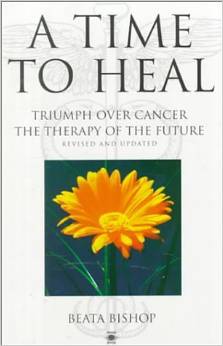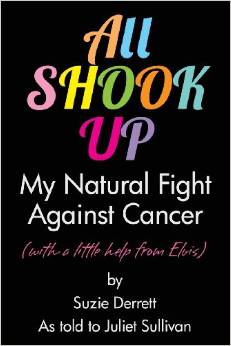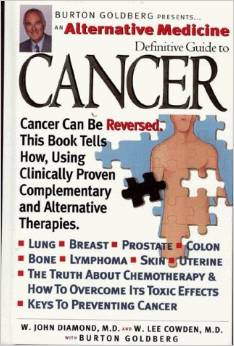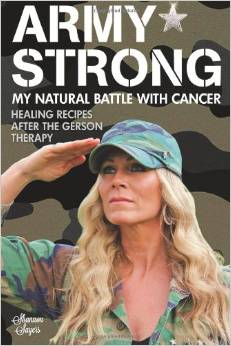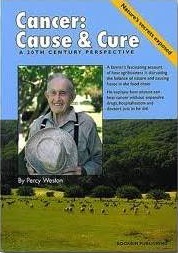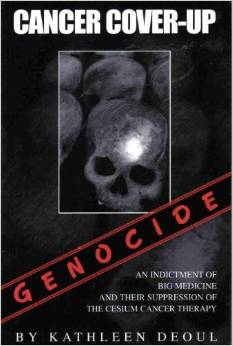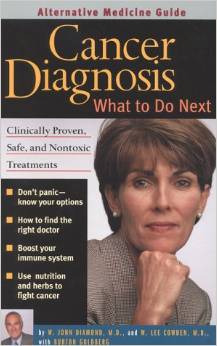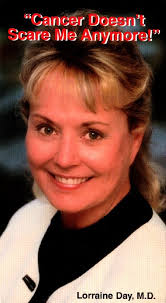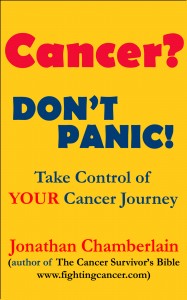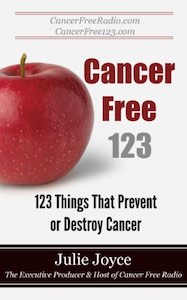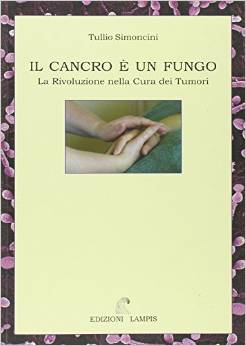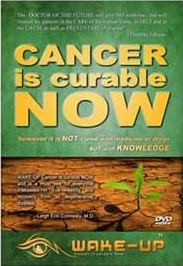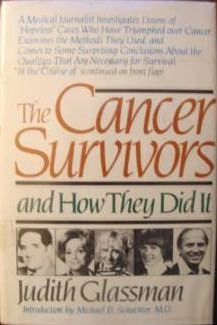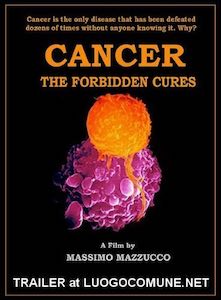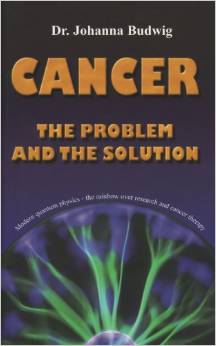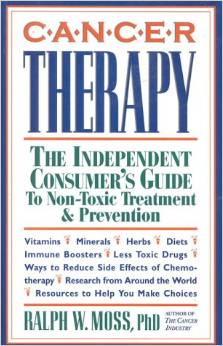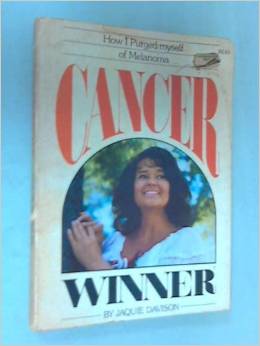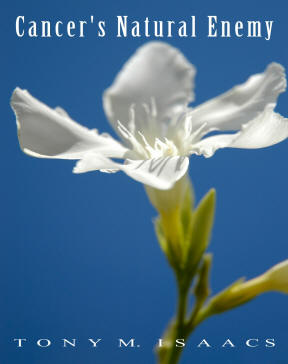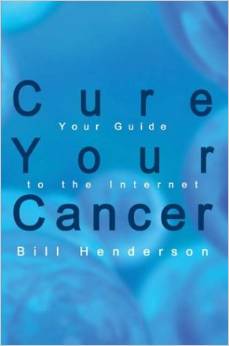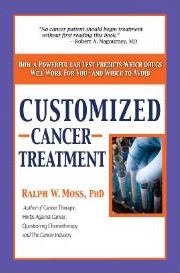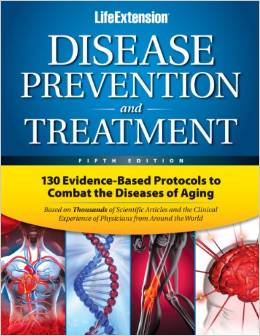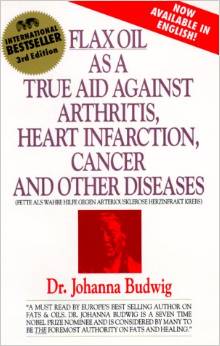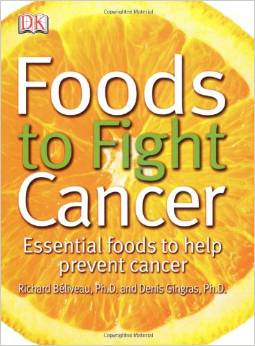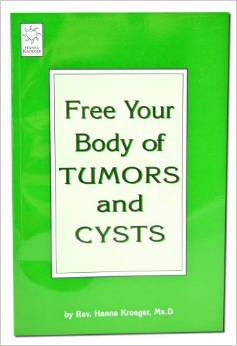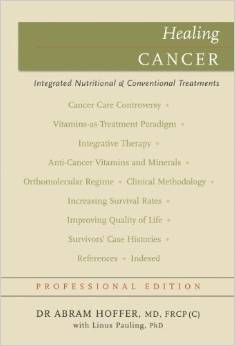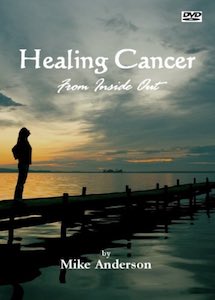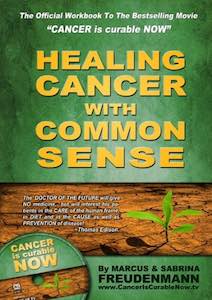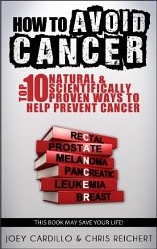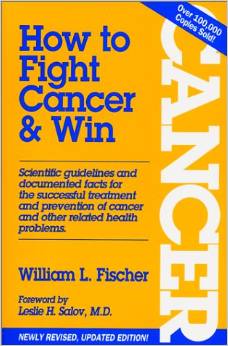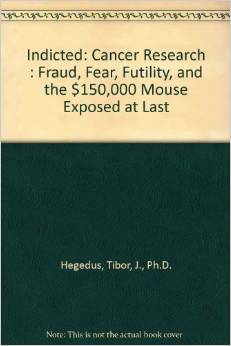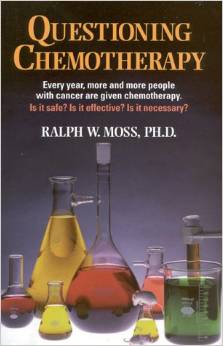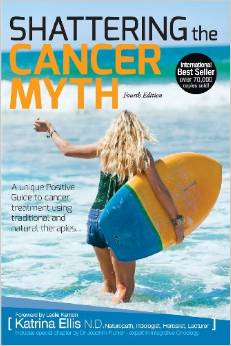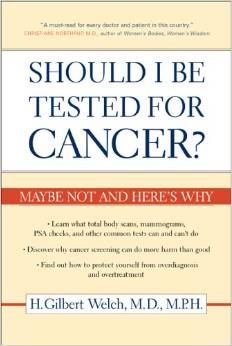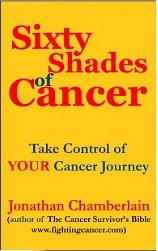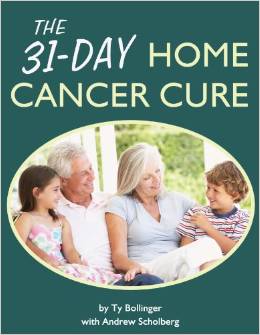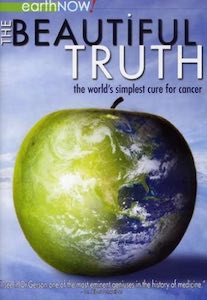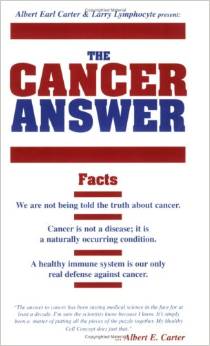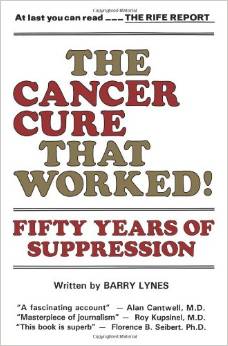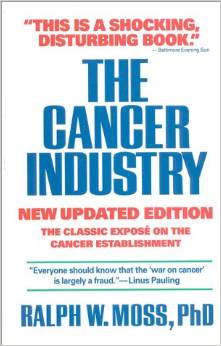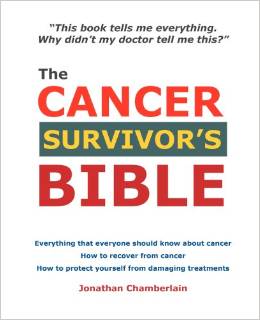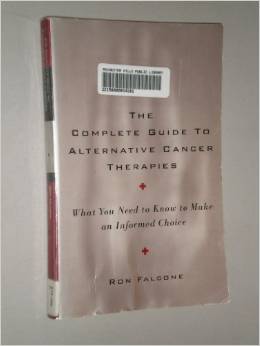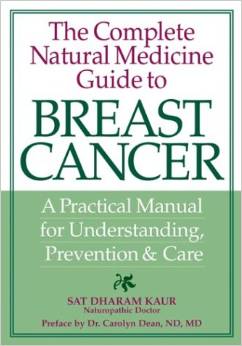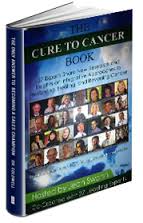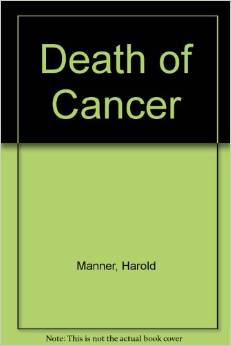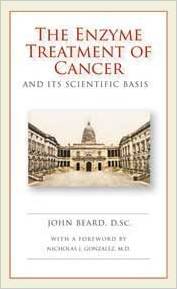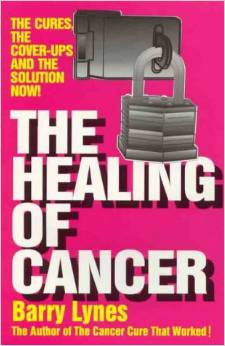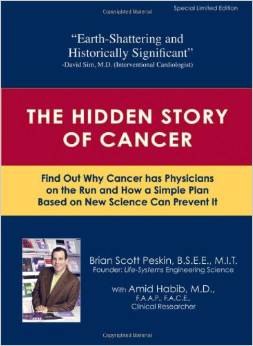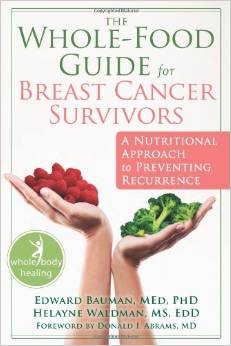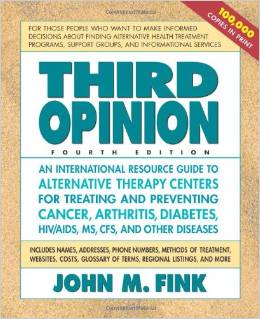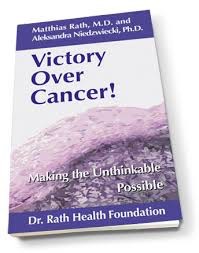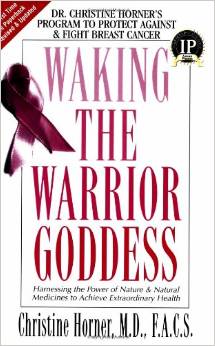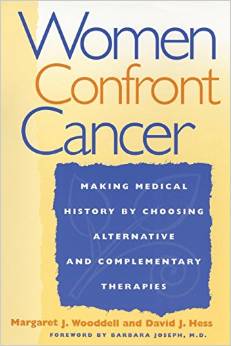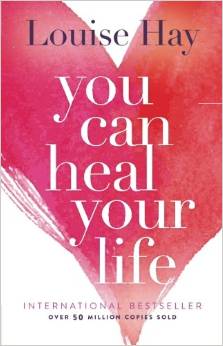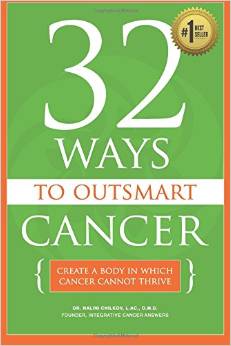
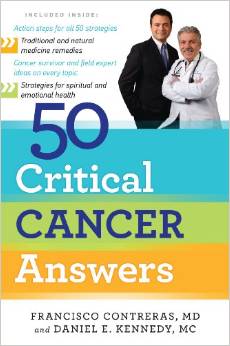
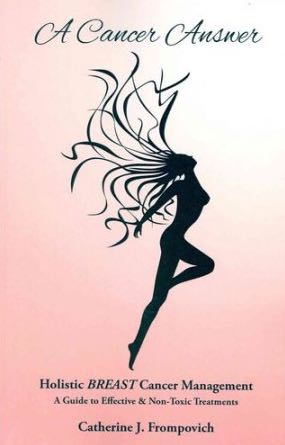
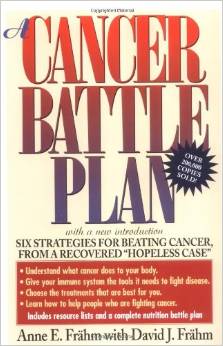
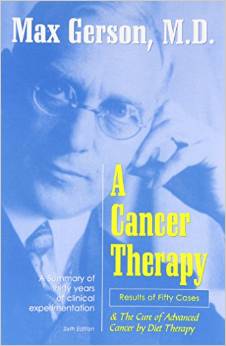
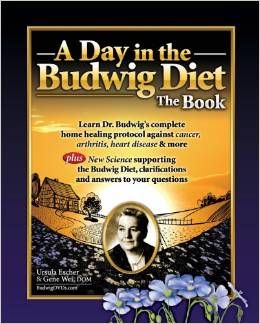
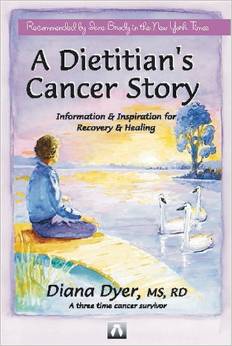
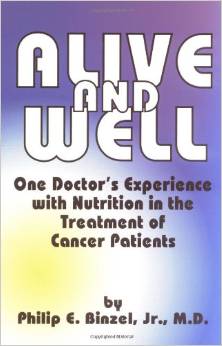
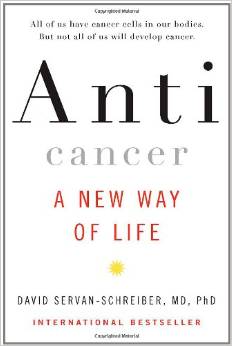
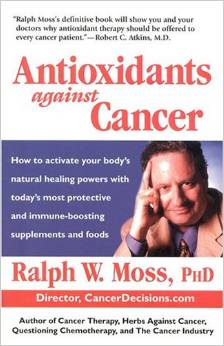
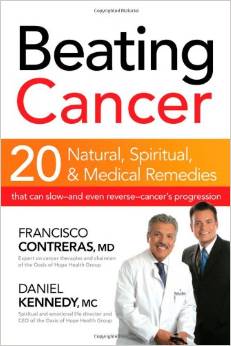
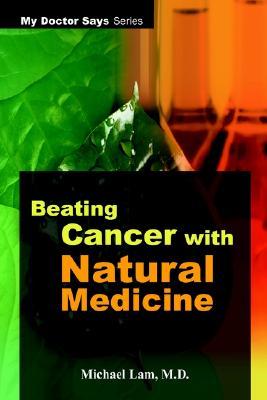
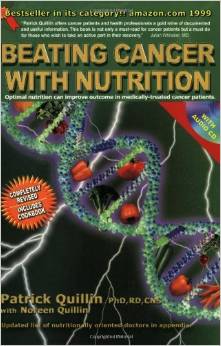
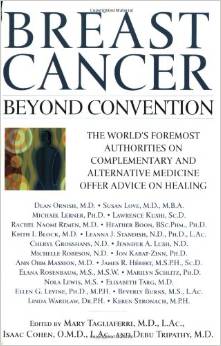
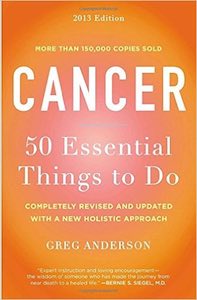
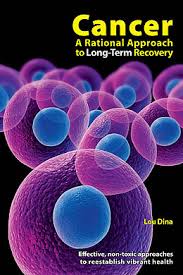
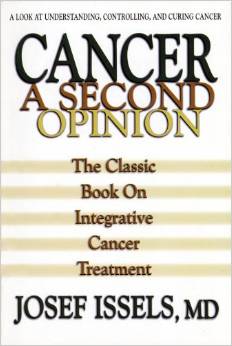
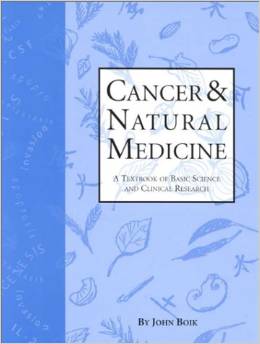
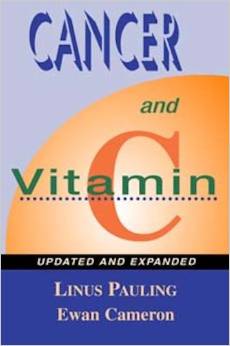
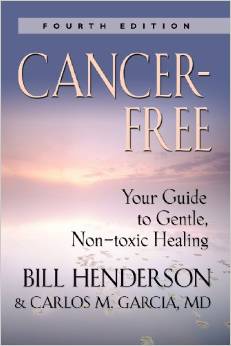
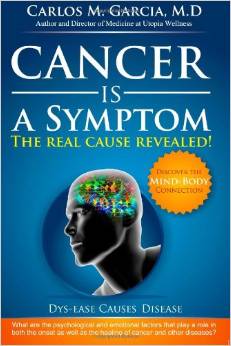
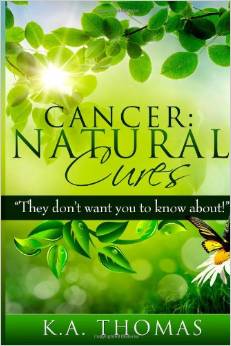
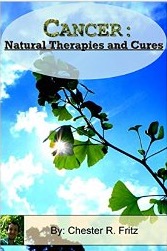
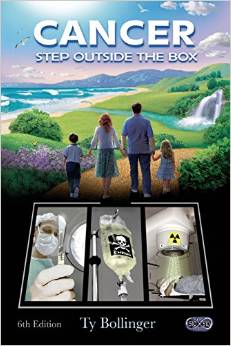
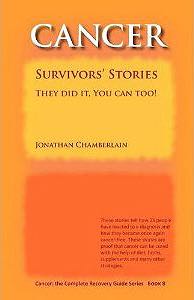
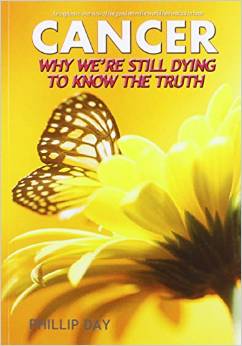
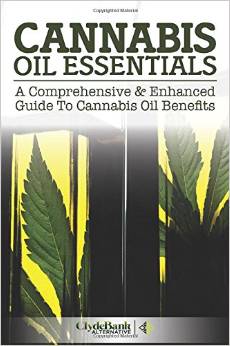
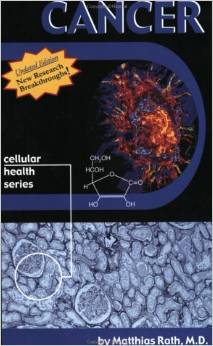
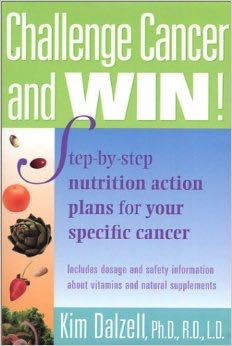
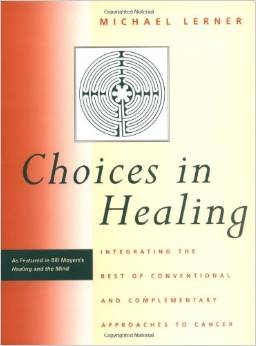
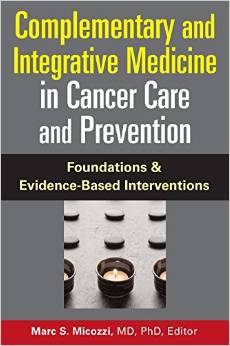
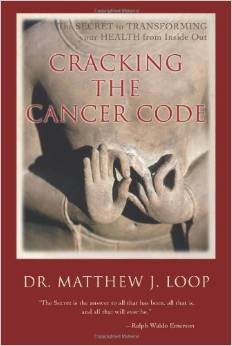
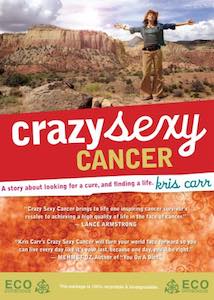
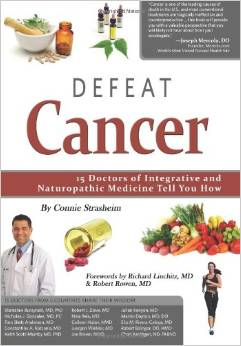
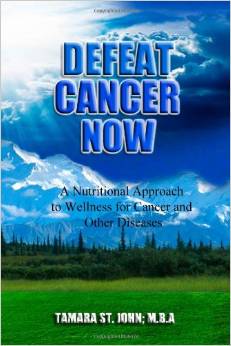
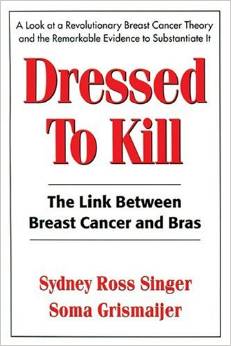
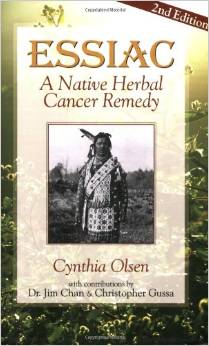
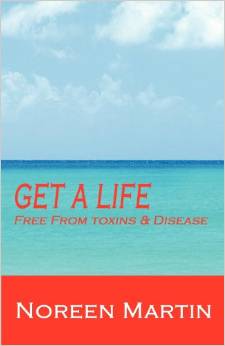
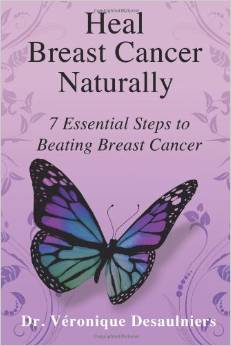
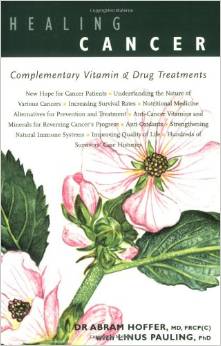
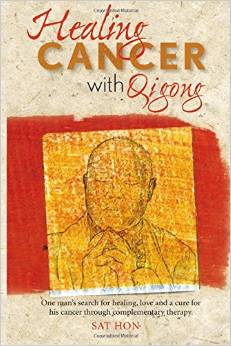
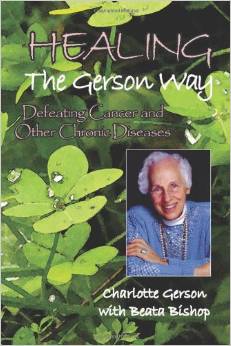
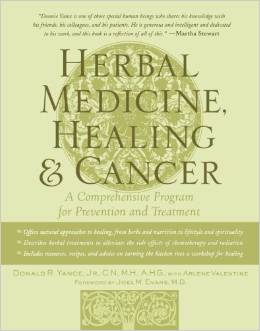
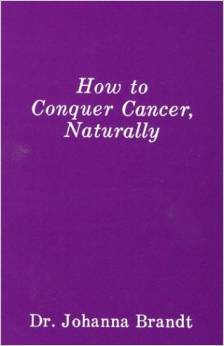
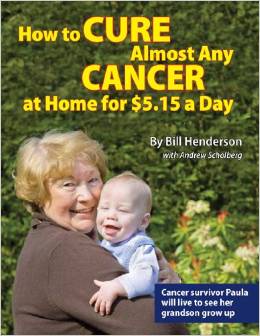
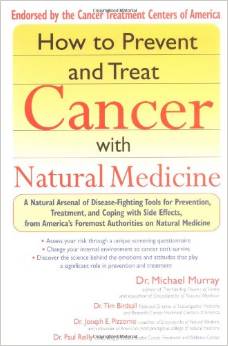
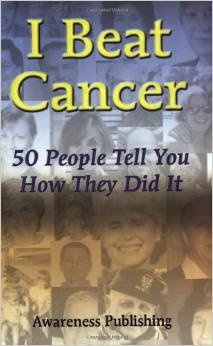
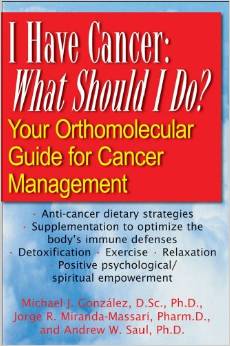
This is not your average book about cancer. The authors, in addition to being healthcare practitioners, have had personal experiences with this potentially devastating disease. I Have Cancer: What Should I Do? maps out a program the authors themselves would follow that includes: anti-cancer dietary strategies, supplements to optimize the body's immune defenses, detoxification therapy, exercises, relaxation techniques, and positive psychological/spiritual empowerment." (back cover)
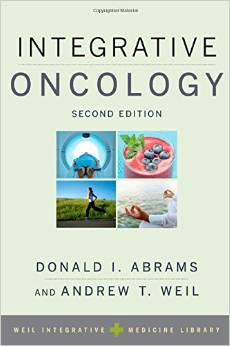
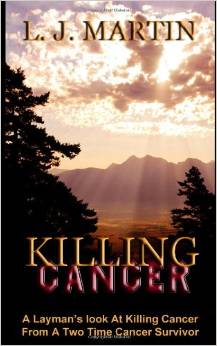
Convinced that cancer is an environmental curse, brought on mankind by both poor farming practices and those chemicals that end up in our air and water, with the advent of cancer he immediately changed all his habits. Fresh fruits and vegetables, juicing to concentrate nutrients, a radical change of body PH balance, and exercise became a way of life, and that, combined with modern, and most moderate, medical treatment he could find, allowed him to beat the monster Big C. And allowed him to return to a normal productive life." (back cover)
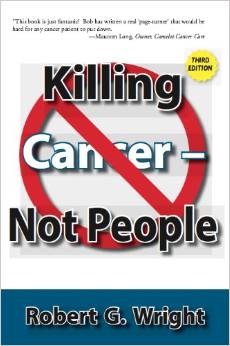
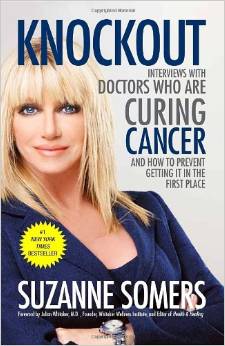
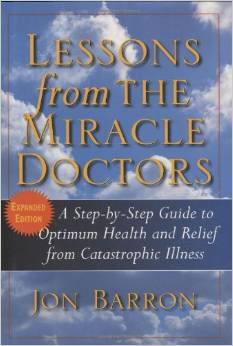
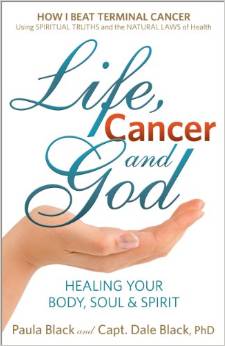
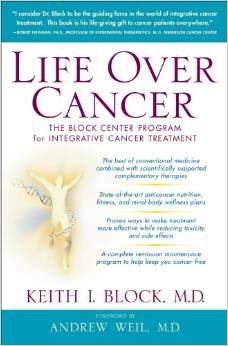
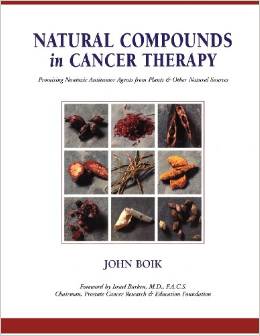
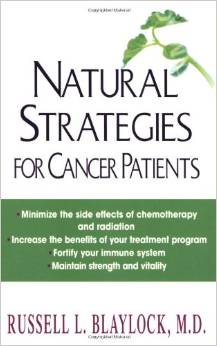
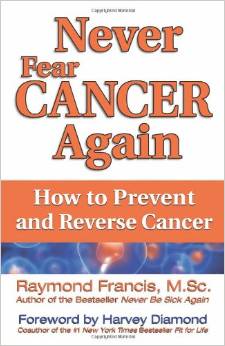
His groundbreaking research reveals that every disease, including cancer, has one simple cause: malfunctioning cells. By attacking cancer at the cellular level where it starts, you can switch off the cancer process completely. In explicit detail, Francis walks you through the Six Pathways that cause unhealthy cells - nutrition, toxin, mental, physical, genetic, and medical - and reveals which lifestyle choices can not only stop cancer before it starts but eradicate malfunctioning cells once cancer is diagnosed. You’ll also discover why common medical interventions, such as chemotherapy and surgery, can do more harm than good, [and] which foods turn cancer cells on and which ones turn them off.
Never Fear Cancer Again will give you a breakthrough understanding of disease and provide an arsenal of knowledge and tools for vibrant and robust health now and in the future." (back cover)
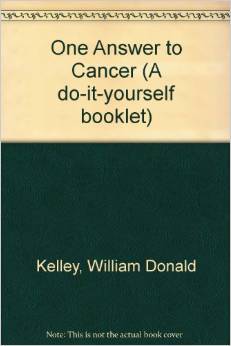
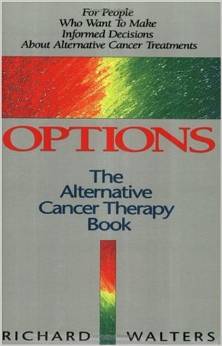
Using plain and simple language, Options accurately - and without bias - explains how each treatment works, presents the scientific rationale underlying each method, and provides clinical documentation of the results. The book further examines the myths and misconceptions surrounding alternative cancer therapies from both political and social perspectives. In addition, Options provides important guidelines for choosing an alternative treatment, as well as detailed information on referral services that can help you select the therapies best suited to your personal needs.
To make an informed decision, it is vital to have access to the right information. Options will help put that information in your hands when you need it." (back cover)
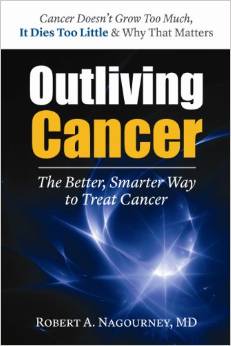
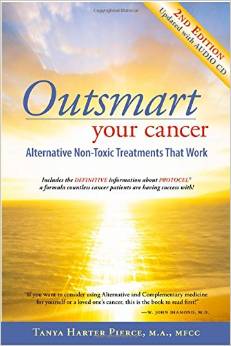
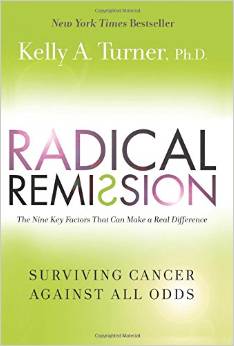
Radically changing your diet • Taking control of your health • Following your intuition • Using herbs and supplements • Releasing suppressed emotions • Increasing positive emotions • Embracing social support • Deepening your spiritual connection • Having strong reasons for living
It is important to note that these are not listed in any kind of ranking order. There is no clear "winner" among these factors. Rather, all nine were mentioned just as frequently in my interviews, even though--as you will see in this book--some people tended to focus more on one factor than the others. Please keep in mind that the majority of the Radical Remission cancer survivors I study did all nine of these factors, at least to some degree, in their efforts to heal their cancer.
For the sake of organization, I have arranged this book into nine chapters that describe each of these factors in depth. In each chapter, we will first explore the main points of a factor, including taking a look at the latest scientific research on that topic. Then we will explore a complete Radical Remission healing story that highlights that factor. Finally, each chapter concludes with a simple list of action steps that, if you wish, you can take right now in order to start bringing these key factors for Radical Remission into your life." (page 8)
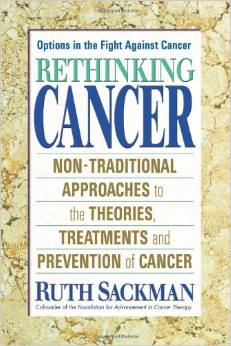
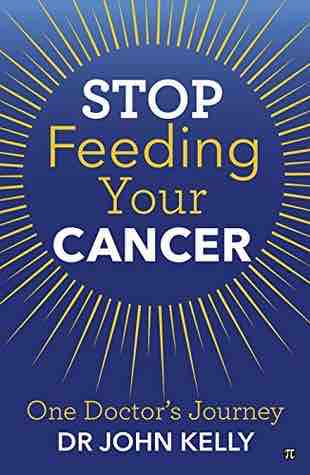
It is because Professor Campbell was not entirely successful in getting his message across that I began this book. [...]" (Preface)
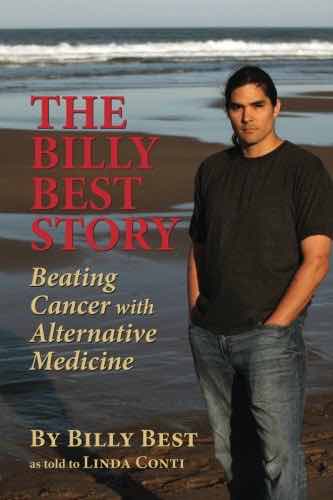
With his young photo suddenly appearing on front pages from coast to coast, Billy hunkered down in Houston, Texas with some new skateboard pals as his parents and the police mounted a nationwide search.
His story became everyone's passion as the television networks snapped up the story for Dateline, 20/20, A Current Affair, and more.
Thanks to an outpouring of support from the public, Billy began a journey of discovery to find an alternative treatment for his cancer.
Eighteen years later and still cancer free, Billy Best teams up with Linda Conti of Sandcastle Memoirs to bring us his remarkable, triumphant story.
This is their first collaboration. (back cover)
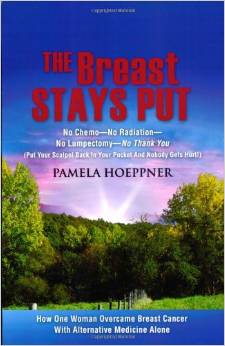
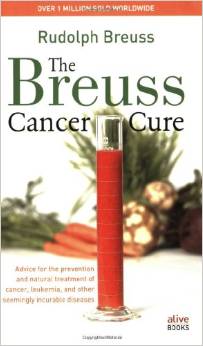
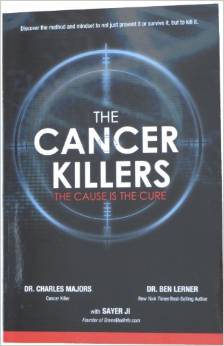
"After treating thousands of patients who were sick with cancer, I can confidently say that what we need to focus on is not the cancer. Our focus must be on the provocateurs, the agents that are causing the body to get sick in the first place. These are the real culprits that build up in the body until you start to get cancer, which in the end is simply an alarming symptom of the accumulation of these agents.
I can treat the cancer, but if I do not stop the accumulation of these agents - the real causes of sickness - the likelihood is that the patient will never fully recover, and often may die. That's why it's crucial to use the proper testing and the proper therapeutic tools with the right intention. You must literally be looking for the right thing. If you have only uncovered the cancer, you have not gone far enough. You must get to the roots of the disease. Once I have found the causes, which are different for each person, I'm able to set up a tailor-made treatment to stop these agents, reverse the buildup and help the patient back to health! Combining the proper diagnostic and therapeutic tools with the right intention over the years has helped 85% of the cancer cases we have treated go into remission. That's an astounding result, but our secret is simple. We are looking for the right thing - the cause of the cancer. Once we have found it using the right diagnostic tools, then we can prescribe an appropriate therapy that avoids the use of the more conventional, yet dangerous protocols used by traditional medicine, such as chemotherapy or radiation.
I consider a cancer tumor to be like a dangerous wildfire, and doctors have the obligation to extinguish it. This sounds very obvious and easy. So why is it, then, that in many cases these flames continue to burn unabated or are left smoldering, only to reappear later in full fury?
The answer is just as obvious: doctors are usually not removing the fuel that these flames are feeding off; they're not getting to the cause of the fire. If you don't clear the undergrowth or dead trees near a forest fire, hungry sparks will find their way to this food, consume it and blaze even more strongly. The same conditions that can exist in conventional medicine. Doctors fail to clear the body of potential sources of fuel that keep the cancer growing and spreading.
This book is going to help identify these sources of fuel and offer ways that you and your doctor can eliminate them. This will help give you the upper hand in the battle against the spread of cancer."
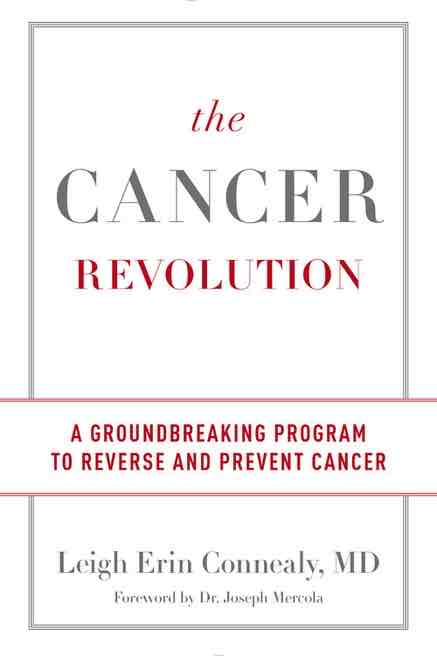
Fortunately, you can learn about many cutting-edge cancer therapies by reading this book. Dr. Connealy carefully and clearly details the wide array of comprehensive strategies that you can consider for treating cancer. There really are an astounding number of choices and she does a magnificent job of compiling them conveniently in one place. It would take you many weeks, and more likely months or years, to collect the options that she concisely reviews here.
Not only does she outline the natural options for treating cancer, but she provides resources that you can use to identify a natural clinician that resonates with your philosophy and budget.
The Cancer Revolution will help you navigate the not widely publicized and frequently difficult to learn about alternatives that leading clinicians from around the world have been using to help put cancer into remission. It could save your life." -- Dr. Joseph Mercola, Founder, mercola.com (Foreword)
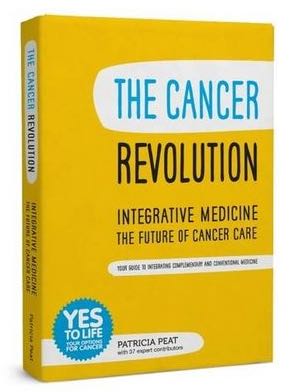
Integrative Medicine is the broadest possible approach to treatment, one that leaves no stone unturned. It is more comfortable with doing too much than with taking the risk of missing a vital piece of the puzzle. In this important new handbook, Patricia Peat has assembled a world-class team of experts to offer practical information on nutrition, lifestyle, conventional medicine and a range of cutting-edge treatments, as well as helpful guidance for navigating through cancer and beyond. For the first time, The Cancer Revolution brings together, in the most accessible form, the whole spectrum of resources that are at hand to support you or someone you love through every stage of cancer and to help you to chart a healthy future." (thecancerrevolution.co.uk)
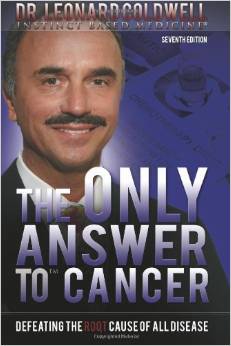
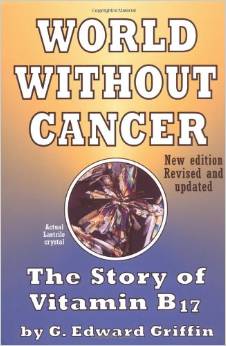
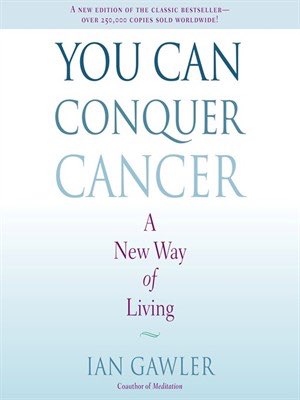
For those willing to take up the challenge that cancer has put to them, there is a road back to health.
What to do? There is so much information available these days. Advice from friends, opinions from medical and other health professionals, lots of great books and so much information on the Internet. This book will distill the benefits of years of experience and gathered knowledge, present it in logical, sequential form, help you to evaluate the many choices available, and then support and guide you along the way.
We will begin in the first two chapters by working through the options, from first diagnosis to long-term survival. Then come the details you will need to convert a good idea into a practical reality. You can conquer cancer. What follows spells out the process of how to do it.
HOPE IS REAL. The starting point is having hope. And hope has a compelling logic to it. No matter how dark it may seem as you start on this road, you need to be assured recovery is possible. It may not always be easy, it may well take a good deal of planning and commitment, but it definitely is possible." (page 1)
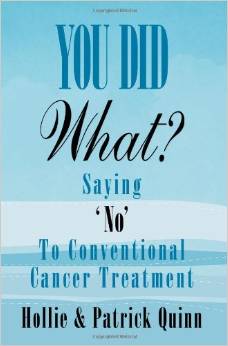
Perhaps most importantly, it's part inspiration. It's about Hollie Quinn, a 27 year-old woman who, with everything to lose, and in the face of intense fear, complexity, and pressure, rejected conventional treatment for her breast cancer, and live well to tell about it. More than any other goal of ours in writing this book, we want you to know that you can, too, if you're so inclined." (Preface)
